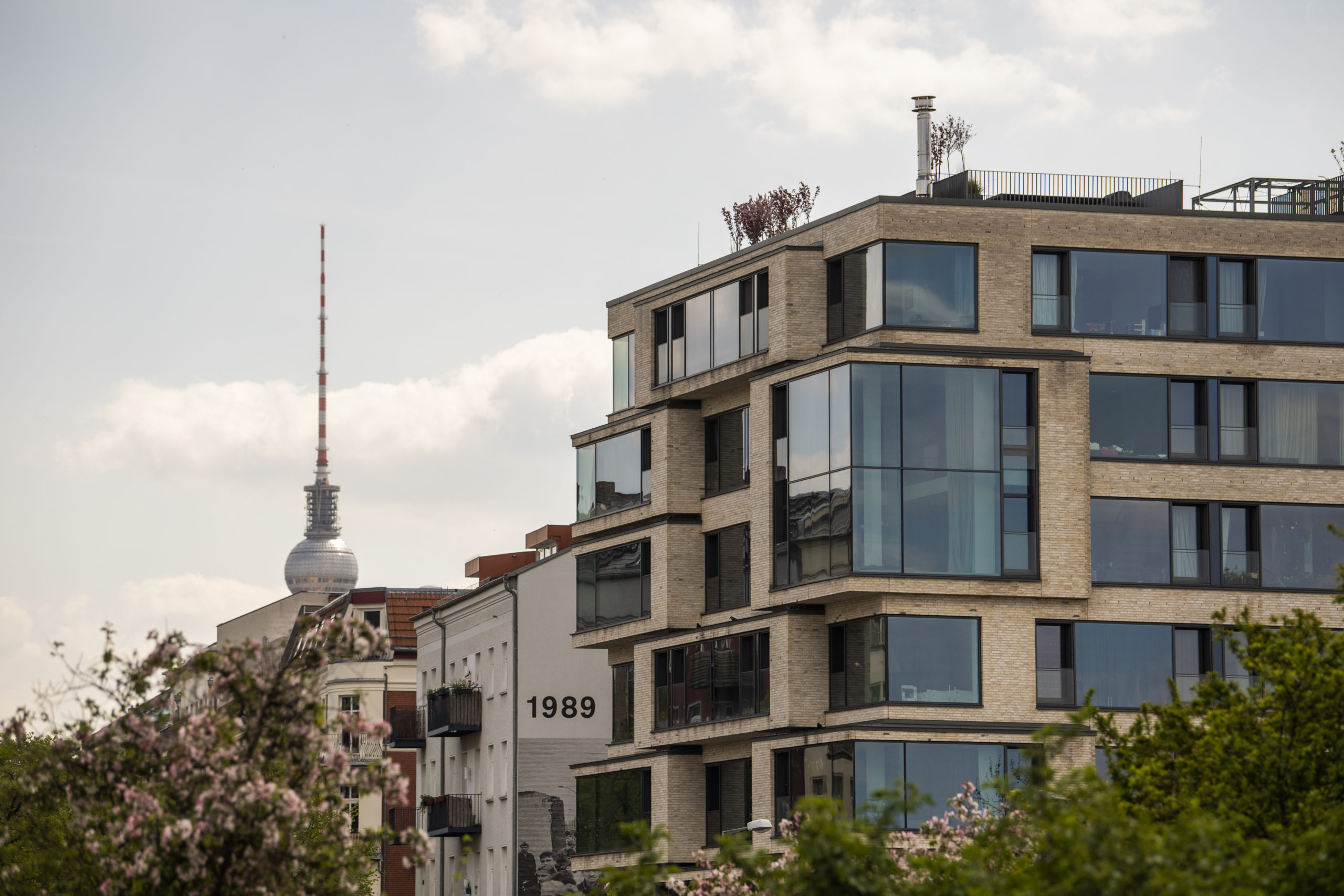Could a landmark court ruling help solve Berlin's housing crisis?

As tenants in Berlin struggle to find affordable housing, a recent ruling against illegal holiday lets could potentially put thousands of properties back on the rental market.
Looking to move? Find your next rental apartment here.
In an increasingly tense situation for tenants in Germany, Berlin stands out as the apex of the country's catastrophic housing crisis.
In the decade between 2009 and 2019, asking rents in the capital more than doubled from €5.60 to €11.40 per square metre, marking the capital out as the metropolis with the fastest rising rents. Since then, the upwards trend has continued, with recent research by consultancy JLL estimating Berlin's median monthly rent at €17.50 per square metre.
But it's not just affordability that remains an issue: a lack of supply is one of the biggest problems that renters encounter. With sluggish construction rates and a growing population, Berlin's limited housing stock just can't keep pace with demand.
This issue has been made worse by the reappropriation of rental properties in profitable short-term lets through companies like Airbnb. Though Berlin has tight restrictions on short-term holiday lets, many of these properties are let illegally under the radar.
If they're discovered, the law stipulates that they can be forcibly turned back into ordinary rental properties to help alleviate the tense housing situation. But until recently, that only applied to properties that had been repurposed in the past decade.
Now, a ruling from Berlin-Brandenburg's Upper Administrative Court (OVG) could mean that any property that breaches the law could be put back onto the rental market.
READ ALSO: Why Germany’s housing crisis is expected to drag on
What did the court ruling say?
The ruling from the OVG dictates that illegal holiday lets and Airbnbs should be turned into ordinary rental flats, regardless of when they were repurposed.
It relates to a law known as the Misappropriation Act, which came into force in Berlin around ten years ago and is intended to stop the rental housing market from shrinking. In short, it restricts some properties for use as long-term rentals and prevents them being misused as commercial or short-term rental properties, particularly when the housing market is tight.

Luxury flats in Berlin Prenzlauer Berg. Photo: picture alliance/dpa | Christophe Gateau
The latest ruling dates way back to 2016, when a woman who let out holiday apartments was ordered by the Berlin district of Mitte to rent out her properties to long-term tenants instead. After an appeal, the case eventually ended up at the OVG, where judges ruled in favour of the district authority at the end of September 2023.
As a result, authorities could go after holiday lets that existed before the law on misappropriation came into force, widening the pool of illegal rental properties that can be repurposed significantly.
READ ALSO: What to know about renting out your home as an Airbnb in Germany
What sort of impact could this have?
Potentially a huge one. According to Mitte's district mayor Stefanie Remlinger of the Greens, hundreds - if not thousands - of new flats could appear on the rental market in Mitte if illegal holiday lets are repurposed.
Describing the OVG's ruling as "groundbreaking landmark judgement", Remingler said: "A business may only take place in a commercial area, in commercial property."
Remlinger's office is currently investigating 1,700 cases of illegal commercial use of rental properties, many of which are in residential areas and some of which contain several rental units. This could be a game-changer when it comes to the availability of flats in the busy central district.
Looking at Berlin more broadly, tens of thousands of flats could currently be misused and ripe for reappropriation, Remlinger said.
With an estimated 20,000 new properties needed each year to cope with demand in Berlin, a widespread initiative to bring Airbnbs and other short-term or commercial lets back into the rental market could significantly ease the current crisis.
This is exactly what Niklas Schenker, spokesperson for rents and housing for the Berlin Left Party, is proposing. In light of the ruling, the left-wing politician has appealed to the Senate to work with the districts to review how they can apply the judgement across the whole of Berlin.
Is it set in stone?
Not just yet. An appeal can still be lodged against the ruling, which means it isn't currently legally binding.
Speaking to regional media outlet RBB, SPD Housing Senator Christian Gaebler sounded a cautiously optimistic note but warned that the judgement may not hold.
"In principle, it is right that all avenues should be explored to bring holiday flats back onto the regular rental market," he said.
Comments
See Also
In an increasingly tense situation for tenants in Germany, Berlin stands out as the apex of the country's catastrophic housing crisis.
In the decade between 2009 and 2019, asking rents in the capital more than doubled from €5.60 to €11.40 per square metre, marking the capital out as the metropolis with the fastest rising rents. Since then, the upwards trend has continued, with recent research by consultancy JLL estimating Berlin's median monthly rent at €17.50 per square metre.
But it's not just affordability that remains an issue: a lack of supply is one of the biggest problems that renters encounter. With sluggish construction rates and a growing population, Berlin's limited housing stock just can't keep pace with demand.
This issue has been made worse by the reappropriation of rental properties in profitable short-term lets through companies like Airbnb. Though Berlin has tight restrictions on short-term holiday lets, many of these properties are let illegally under the radar.
If they're discovered, the law stipulates that they can be forcibly turned back into ordinary rental properties to help alleviate the tense housing situation. But until recently, that only applied to properties that had been repurposed in the past decade.
Now, a ruling from Berlin-Brandenburg's Upper Administrative Court (OVG) could mean that any property that breaches the law could be put back onto the rental market.
READ ALSO: Why Germany’s housing crisis is expected to drag on
What did the court ruling say?
The ruling from the OVG dictates that illegal holiday lets and Airbnbs should be turned into ordinary rental flats, regardless of when they were repurposed.
It relates to a law known as the Misappropriation Act, which came into force in Berlin around ten years ago and is intended to stop the rental housing market from shrinking. In short, it restricts some properties for use as long-term rentals and prevents them being misused as commercial or short-term rental properties, particularly when the housing market is tight.

The latest ruling dates way back to 2016, when a woman who let out holiday apartments was ordered by the Berlin district of Mitte to rent out her properties to long-term tenants instead. After an appeal, the case eventually ended up at the OVG, where judges ruled in favour of the district authority at the end of September 2023.
As a result, authorities could go after holiday lets that existed before the law on misappropriation came into force, widening the pool of illegal rental properties that can be repurposed significantly.
READ ALSO: What to know about renting out your home as an Airbnb in Germany
What sort of impact could this have?
Potentially a huge one. According to Mitte's district mayor Stefanie Remlinger of the Greens, hundreds - if not thousands - of new flats could appear on the rental market in Mitte if illegal holiday lets are repurposed.
Describing the OVG's ruling as "groundbreaking landmark judgement", Remingler said: "A business may only take place in a commercial area, in commercial property."
Remlinger's office is currently investigating 1,700 cases of illegal commercial use of rental properties, many of which are in residential areas and some of which contain several rental units. This could be a game-changer when it comes to the availability of flats in the busy central district.
Looking at Berlin more broadly, tens of thousands of flats could currently be misused and ripe for reappropriation, Remlinger said.
With an estimated 20,000 new properties needed each year to cope with demand in Berlin, a widespread initiative to bring Airbnbs and other short-term or commercial lets back into the rental market could significantly ease the current crisis.
This is exactly what Niklas Schenker, spokesperson for rents and housing for the Berlin Left Party, is proposing. In light of the ruling, the left-wing politician has appealed to the Senate to work with the districts to review how they can apply the judgement across the whole of Berlin.
Is it set in stone?
Not just yet. An appeal can still be lodged against the ruling, which means it isn't currently legally binding.
Speaking to regional media outlet RBB, SPD Housing Senator Christian Gaebler sounded a cautiously optimistic note but warned that the judgement may not hold.
"In principle, it is right that all avenues should be explored to bring holiday flats back onto the regular rental market," he said.
Join the conversation in our comments section below. Share your own views and experience and if you have a question or suggestion for our journalists then email us at [email protected].
Please keep comments civil, constructive and on topic – and make sure to read our terms of use before getting involved.
Please log in here to leave a comment.